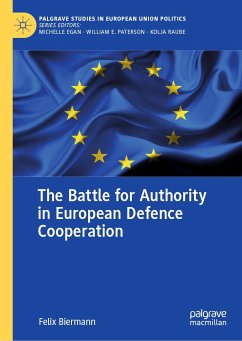This book ¿addresses one of the most profound transformations in international governance: the proliferation of regime complexity. Regime complexes can be found wherever state interests clash. Thus, even in one of the most constitutionalized of institutional environments, the European Union (EU), regime complexity features prominently - especially in European defence cooperation, where states have created competing institutions overlapping in their mandates to organize armaments cooperation or defence planning. The tense relationship between the institutions of the EU's Common Security and Defence Policy (CSDP) and those of NATO is well-known. Yet inter-institutional conflict is not limited to this dichotomy. It extends to institutions beyond these two frameworks, such as those of the former Western European Union and regional defence cooperation frameworks such as the Nordic Defence Cooperation (NORDEFCO), or OCCAR - a minilateralarmaments agency. All these institutions have partially overlapping membership structures and mandates and therefore rival authority claims in the field of European defence. This book uncovers the hidden regularities of the ongoing battle for institutional authority among EU member states.
Felix Biermann is Research Fellow at the Geschwister-Scholl Institute for Political Science, LMU Munich, Germany. His areas of interest are European Integration, International Institutions, Cyber Security, and Security Studies.
Dieser Download kann aus rechtlichen Gründen nur mit Rechnungsadresse in A, B, BG, CY, CZ, D, DK, EW, E, FIN, F, GR, HR, H, IRL, I, LT, L, LR, M, NL, PL, P, R, S, SLO, SK ausgeliefert werden.









